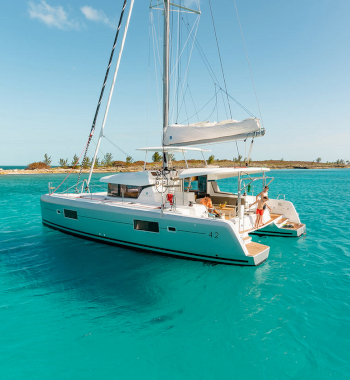Archivist Angel Smith Tells the BVI’s Stories
By Jane Bakewell
One thing to know about historian, Angel Smith is that he is a “storyteller.” In a recent interview at the Archives and Records Unit of the BVI, Smith the current Director, recalled stories about his family history told by his father when Angel was a little boy.
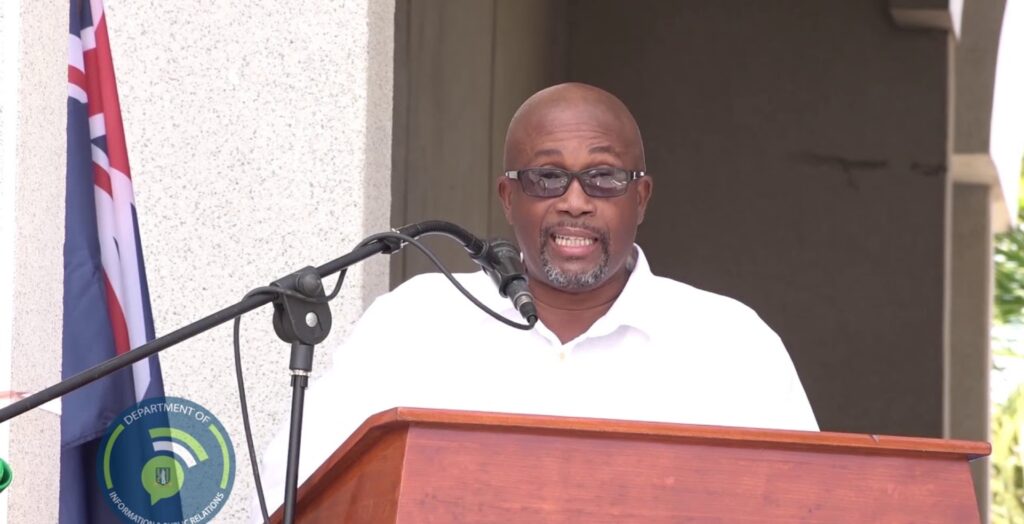
These fascinating tales he and his brothers clamored for, inspired his interest in preserving historical archives and led to his eventual vocation as an educator and historian. He felt learning his identity through history, especially as traced back in the Virgin Islands, showed the resiliency and strength of his ancestors originally brought over as slaves from Africa.
While serving as Chief Education officer under the H. Lavity Stoutt administration, Angel was in charge of putting together and chairing programs for the schools on Social Studies. He would go to Archives Unit, find interesting historical material and include it in the program. In his own “story-telling fashion” Smith described how after one of these events, well-known cultural icon and educator, Eileene Parsons took him aside and chided him, saying, “I am tired of this nonsense!”
“Initially I froze,” he recalled, wondering what he had said wrong. She went on to tell him that gathering a little bit of historical information here and there was not enough. “Why don’t you go to University, research it and put it all together?”
That life-changing push sent him to England for five years with his family to pursue his doctorate at the University of Hull in Yorkshire renowned for its programs in Postgraduate Research. During that time, he often sought out old book stores looking for historical books about the Virgin Islands, and managed to find a few gems for his research.
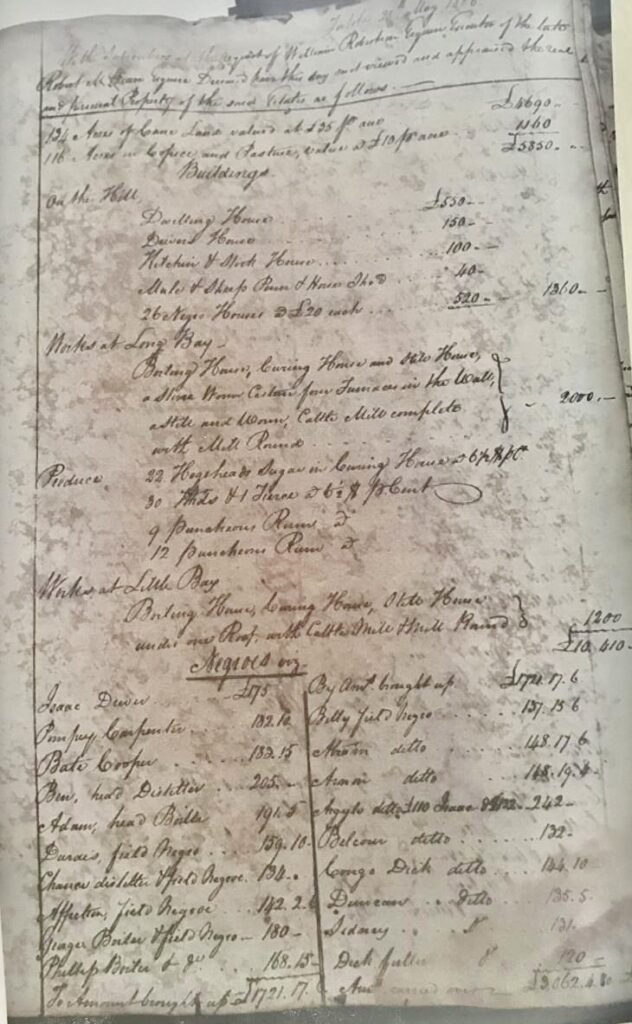
Returning to Tortola, Smith continued his research getting documents stored at the old government administration building. However, Hurricane Irma (2017) while wreaking havoc all over the islands also caused leaks in the Archives storage room in the Administration Complex damaging many early documents. Those documents were later sealed and put back in the building with a temperature-controlled environment and other safety precautions, until they could be restored. Smith began his role as Director of Archives in 2022.
“Restoration is a very difficult process,” Angel admitted. First you need Preservationists to delicately handle the documents and bring them back to a state where conservationists are then able to digitize the information. As a historian, Smith’s role is then to cull that information and make sense of it in a cultural and historical perspective.
In late June of this year the Archives Unit put on a show for the public themed: “From Property to Proprietors” exhibiting land holding licenses by freed blacks, dating back to the 1800s. Angel explained, that “status” was key to being able to purchase land.
There were three sub-groups under the domination of the white plantation land owners from the 1700s to the mid-1800s. Emancipation was eventually recognized in the territory in 1834. These groups were black slaves brought in from Africa to work the plantations, freed blacks, who arrived with that status or were granted it by their former owners and then the “coloreds” or mixed-race men and women who had been born to the white plantation owners either by marriage or an outside union.
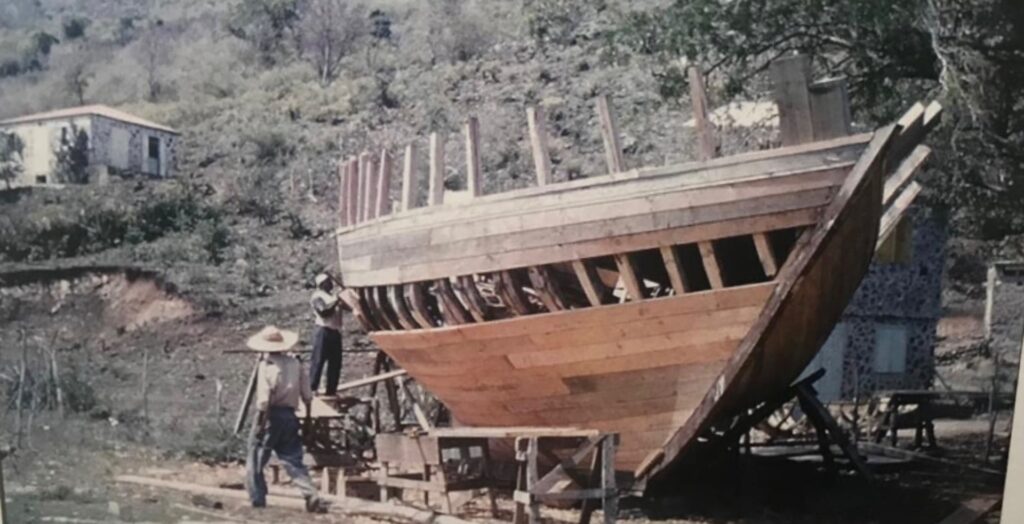
The mixed-race status interestingly was passed down through the mother. If your mother was mixed race you would be under that status. However, if your father was mixed race, he was still considered black and so would his offspring. His white father would have to purchase his freedom. Status determined who could be property holders.
So “coloreds” were able to own property and many families in the BVI can trace their landholdings back to a mixed- race matriarchal lineage. Often these land transfers happened at marriage when a white plantation owner would deed some of his property to his black wife, who would then pass it onto her off spring.
Of course, in all cultural discourse, things can “get complicated.” Often a black landowner might have many, what are termed, “outside wives.” These are women who he was not legally married to but who bore his children. Larger estates were often divided amongst the children of both these unions.
Angel Smith can trace his own land holding lineage back to an ancestor who had both “inside and outside wives.” Interestingly, this particular Smith historical line, which owns a lot of the land in Sopers Hole and Cox Heath is still very connected as a family today. Recently close to 80 persons from the BVI and abroad came together for a family celebration over August Emancipation week on Tortola. Members of the family have even written books about their history and land holding. Much of this land is still in the ownership of the original family line.
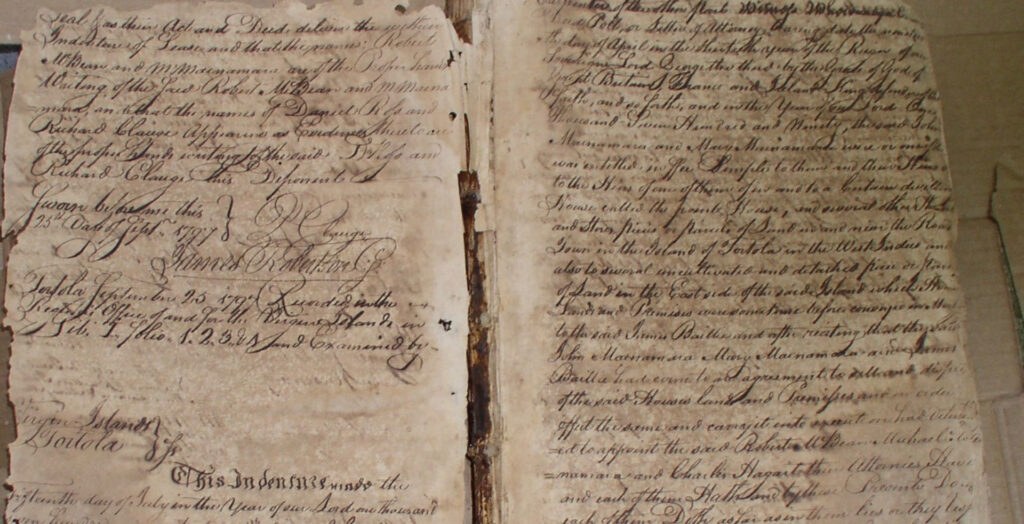
Angel Smith continues to see his role as a historian connecting the past to the present. “We are a product both of history and geography,” he emphasized. “Our ancestors taught us how people were able to survive in these islands.”
In the old days, the saying went: “No slaves, no sugar.” The plantations thrived on the exploited slave labor. Once the sugar trade started to fail, they turned to cattle for meat, milk and butter. Many slaves at the time, although it was “illegal,” owned and cared for the cattle. It was easier for the mill owners to rent the cattle to run the circular crushing sugar mills than deal with caring for them as well. This set many cattle owners in good stead when the sugar plantations closed. Milk and butter production were some of the main food industries in the mid 1800s post-emancipation.
As we concluded our conversation, Angel said, “History makes us wiser. We live someone else’s experience. We learn from our mistakes and we know better who we are.” Suceeding generations will appreciate the efforts made by the BVI’s Chief Archivist and historian to preserve their past.
Read more about BVI history at:






